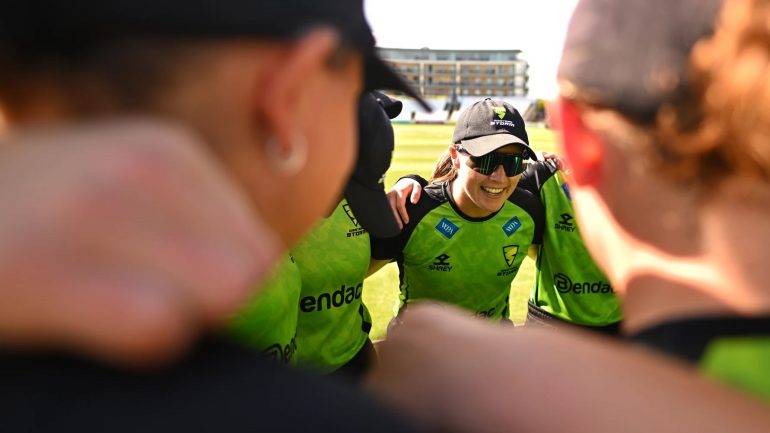ECB announces increased investment, evolved ownership model and expanded competition structure for women’s professional game
The England and Wales Cricket Board (ECB) is today announcing the next stage in the evolution of women’s cricket with the creation of a three-tiered domestic competition structure and a shift in the ownership model underpinning the women’s professional game.
In addition, the ECB has also confirmed that it will invest a further £4m-£5m per year into the women’s professional game from 2025-2028, taking the annual investment in this space to c.£16m.
Under the plans, the existing eight women’s Regional teams (currently hosted by FCCs in a collaborative Regional Model) will evolve to become eight women’s professional ‘Tier 1 Clubs’ – each owned, governed, and operated by an individual First Class County (FCC) or Marylebone Cricket Club (MCC).
These eight clubs will compete in the top level of an expanded three-tiered women’s domestic structure – participating in the ECB’s women’s professional T20 and 50-over competitions – from the 2025 season.
The 18 FCCs and MCC have therefore each now received an invitation to tender to become a women’s Tier 1 Club and have until 10 March 2024 to submit a bid.
This tender process represents the first step to evolve the women’s professional game structure. Key aims of this work include:
• Ensuring stronger ownership, accountability, and governance to support the growth of women’s cricket.
• Creating scale and visibility for the women’s game to accelerate team and player fandom.
• Establishing a more compelling platform to commercialise women’s cricket, while enhancing existing arrangements for FCCs with commercial partners who want to sponsor aligned male and female sports properties.
• Providing long-term stability and a deeper sense of belonging for the women’s teams and female players.
Following the conclusion of the tender process, it is anticipated that FCCs who were not awarded Tier 1 status and, separately, all National Counties will be invited to be involved in a process to determine the composition of Tier 2 and Tier 3 in the new-look women’s domestic competition structure. It is anticipated that the outcome of this process will be confirmed by September 2024, ready to launch the evolved women’s domestic structure in full in 2025.
For the duration of the 2025-2028 seasons all three tiers will be ‘closed’, with no promotion or relegation.
The three-tier structure aims to build on the impact of the Regional Model, which has accelerated performance levels within women’s cricket and laid solid foundations, to further grow the depth and reach of the women’s professional game.
ECB Chief Executive Officer Richard Gould said: “Since 2020, through the advent of the women’s Regional Model, we have seen significant progress in the professionalisation of women’s cricket, but we are still only just scratching the surface of its potential.
“To continue moving forward, and to make cricket a gender-balanced sport, we need a change in the ownership model and governance structure underpinning the women’s professional game.
“This invitation to tender and the uplift in funding therefore represents our next step: a step that will embed the ownership of our eight women’s professional teams within the game, drive accountability, and elevate the status of women’s domestic cricket to enable it to go further, grow faster and reach its full potential.”
ECB Director of Women’s Professional Game Beth Barrett-Wild said: “The pace and nature of change within the women’s cricket landscape over the last ten years, but especially the last five, has been rapid and transformational.
“The number of opportunities for girls and women to access the sport has never been greater, and the number of people following and falling in love with the women’s game has never been higher.
“We believe that the next chapter is less about the separate transformation of women’s cricket and more about the whole game evolving together.
“The invitation to tender issued to all 18 of our FCCs and MCC today to progress the ownership and governance of our eight women’s professional teams, along with the significant expansion of the women’s domestic competition structure from 2025 and uplift in funding, represent crucial next steps in cricket evolving into the sport we want it to be.
“One with equality of opportunity for men and women, boys and girls, to feel like it is a game for them.”
With thanks to the ECB









